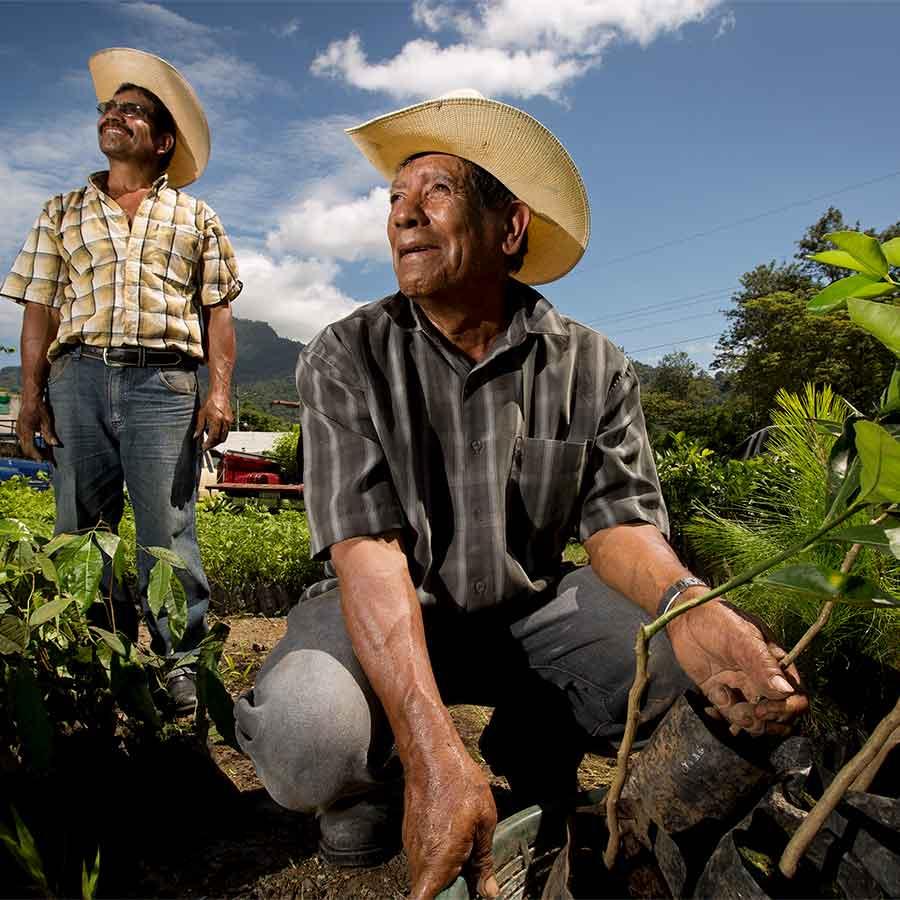Article published in: October 2021
Article updated in: April 2025
AGROFORESTRY, AN ASSET FOR REGENERATIVE AGRICULTURE
Agroforestry refers to a land use system in which trees are grown around or among crops or pastureland, making use of the complementary nature of trees, crops and/or animals.
Applied to coffee farming, agroforestry means that coffee trees are grown beneath the canopy and within the landscape of other trees. Trees are complementary to coffee as they generate a range of benefits for the ecosystems where they are planted. These include soil protection, water replenishment, windbreak, and temperature regulation, which in turn enable coffee to produce a stable volume at quality – increasing its economic value to farmers.
Trees also act as carbon sinks and habitats for biodiversity.
From farmer livelihood to climate change and biodiversity conservation, agroforestry has an important role to play in coffee’s transition to regenerative agriculture.

10M TREES PLANTED BETWEEN 2014 AND 2024
A key principle followed across all our agroforestry operations is that only native trees are planted. Experience tell us that, during the transition of farming practices from one model to another, the trust and bond built between our partners, agronomists and the farmers helps ensure success.
In our efforts to not only preserve but also restore coffee ecosystems and reduce our operational carbon footprint, we have planted 10 million trees in and around coffee farms between 2014 and 2024. These efforts span 9 countries: Brazil, Colombia, Costa Rica, Ethiopia, Guatemala, Indonesia, Kenya, Nicaragua, and Uganda.


